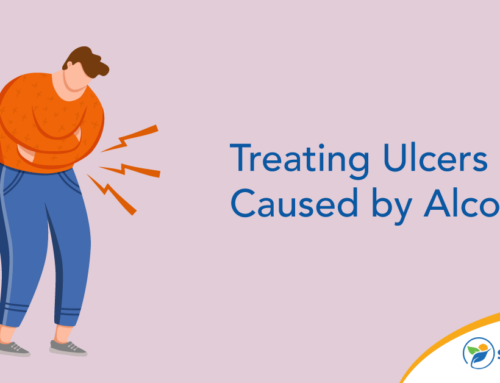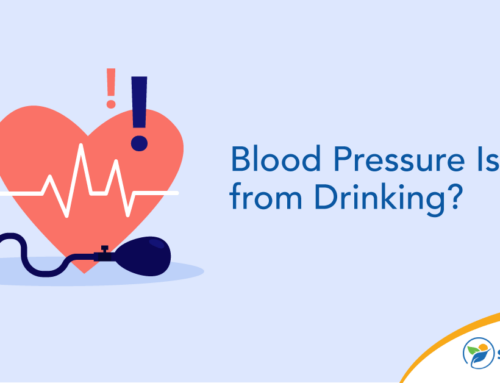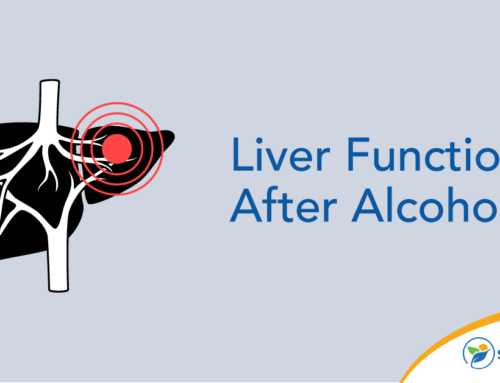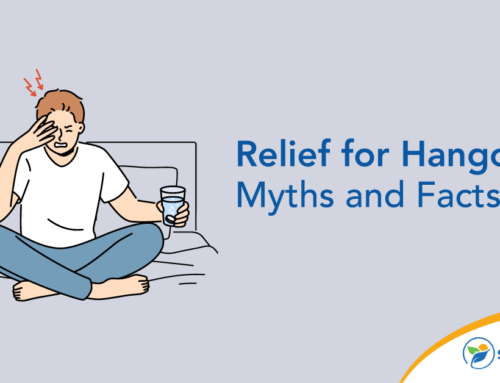Alcoholic beverages are a prevalent part of everyday society. People drink to relax after a long day, celebrate important milestones and even drown their sorrows during adverse life events. Regardless of the occasion, alcohol always seems to be an appropriate response.
Those suffering from mental health conditions often use alcohol as a coping tool. In some cases, drinking can exacerbate or even cause mental illnesses. Considering how alcohol directly affects the brain, it’s important to understand the alcohol-mental health connection and how it can affect your recovery journey.
Understanding the Alcohol-Mental Health Connection
The relationship between alcohol and mental health is nuanced and complex. People dealing with mental health issues often turn to alcohol as a way to cope, as it may provide momentary relief. But long-term drinking can set the stage for worsened mental health problems.
As a depressant, alcohol affects the brain’s chemistry. That initial feeling of buoyancy and relaxation after the first drink comes down to stimulating the brain’s reward system. However, drinking also impairs cognitive functions such as judgment, decision-making and inhibitions. Over time, it can deplete you of serotonin, a neurotransmitter associated with regulating mood, and cause feelings of depression as a result.
The effects of drinking and mental health can feed into each other and cause a detrimental cycle. Your mental health influences your drinking habits, the psychological effect worsens your mental health conditions, you drink to alleviate the symptoms, and so on. People with co-occurring alcoholism and mental health disorders tend to experience more frequent alcohol use relapses and more intense psychiatric symptoms.
Mental Health Conditions Comorbid With Alcohol Use
Studies have found a strong connection between several mental health conditions and alcohol use. Some of the most prevalent co-occurring mental health conditions are:
- Anxiety disorders. The three most common disorders frequently co-occurring with alcohol abuse are generalized anxiety disorder, social anxiety disorder and panic disorder. People with these conditions may drink to temporarily cope with feelings of anxiety. However, paradoxically, alcohol can make anxiety symptoms worse.
- Depression. Depression and alcohol often go hand in hand, forming a hard-to-break cycle. While using alcohol may alleviate symptoms of depression, excessive drinking can exacerbate depressive symptoms over time. The two conditions reinforce each other and worsen overall mental health.
- Post-traumatic stress disorder. PTSD often coexists with alcohol use disorder. Alcohol may initially provide relief from distressing PTSD symptoms, such as flashbacks and hypervigilance. However, prolonged alcohol use can worsen symptoms and impair day-to-day functioning.
- Bipolar disorder. Bipolar disorder refers to alternating periods of depression and mania or hypomania. Individuals with bipolar sometimes turn to alcohol during manic episodes to intensify feelings of euphoria and during depressive episodes to alleviate feelings of intense sadness. Using alcohol can destabilize mood and increase the frequency and severity of mood swings.
- Personality disorders. Certain personality disorders, such as borderline personality disorder and antisocial personality disorder, frequently coexist with alcohol use disorder. These disorders are characterized by impulsive behaviors, including drinking to excess, as a way to manage emotional dysregulation and interpersonal struggles.
- Attention deficit hyperactivity disorder. People with ADHD may face difficulties in attention, hyperactivity and impulsivity. Some turn to alcohol to cope with the challenges of managing their symptoms, leading to an increased risk of alcohol use disorder.
The Dangers of Self-Medicating With Alcohol
Self-medicating mental health conditions with alcohol is a common but risky practice that can have severe consequences. While drinking may initially bring relief from distressing symptoms, the relief is temporary and often masks the underlying issues. Simply put, drinking to feel better ultimately makes things worse. Here’s why you should never self-medicate with alcohol:
- It may worsen your symptoms. Drinking alcohol can intensify symptoms and worsen your underlying mental health condition. This creates a vicious cycle where you increasingly rely on alcohol to cope while further exacerbating your mental illness.
- It can increase your dependency. Regular alcohol use as a form of self-medication can lead to the development of alcohol dependence or addiction. Becoming reliant on alcohol may induce a never-ending cycle of dependence and withdrawal.
- It can impact your health outcomes. Alcohol use can have detrimental effects on physical health. It’s linked to several illnesses, including liver disease, cardiovascular problems, gastrointestinal issues and neurological damage. Combining these risks with the challenges of managing a mental health condition can lead to a downward spiral of overall health.
- It can interfere with treatment. Self-medicating with alcohol can interfere with the effectiveness of mental health treatment. Alcohol may interact with psychiatric medications, reducing their efficacy and potentially causing harmful side effects.
- It can cause you to engage in risky behaviors. Alcohol intoxication can impair your judgment and decision-making, leading to an increased risk of engaging in harmful behaviors such as substance abuse, self-harm or suicidal ideation.
Getting Help Is Complicated — But Worthwhile
For people struggling with alcohol use disorder’s impact and a concurrent mental health condition, getting the necessary help can be a complex process. The overlapping symptoms of AUD and mental health disorders can make it harder for mental health professionals to make an accurate diagnosis — but diagnosing these conditions is critical to ensure medical intervention.
Additionally, the social stigma surrounding mental health and substance use disorders may stop people from seeking help. Fear of judgment or discrimination may create a barrier to reaching out for assistance, perpetuating a cycle of secrecy and avoidance.
Mental health and substance use disorder treatments often exist in separate silos and suffer limited integration. This lack of coordination sometimes causes disjointed care, where the treatment of one condition may not adequately address the other.
Despite these challenges, integrated treatment approaches that address alcohol use disorder and mental health conditions concurrently are showing promise. Certain treatment types, such as individual therapy, medication management and support groups, can offer comprehensive care for people with a dual diagnosis.
Receiving professional help is an essential step toward navigating the complexities of dual diagnoses and starting your path to recovery. Our dedicated support team is available 24-7 to provide understanding, guidance and a path towards recovery. Reach out to Sunlight Recovery and take the first step towards a healthier, brighter future.







